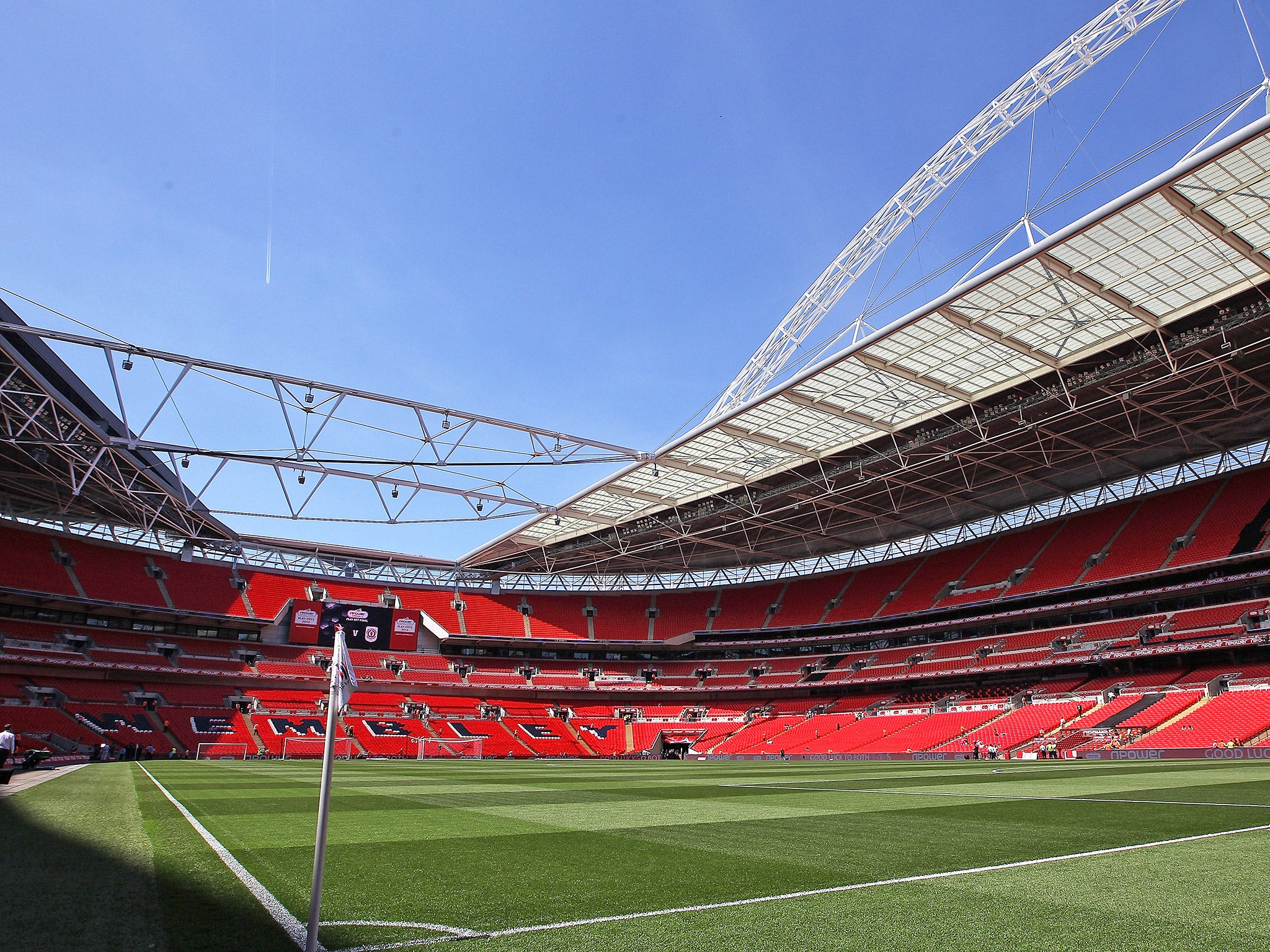FA to lay off a quarter of its staff to help fund £260m investment in grass roots football over next four years
Governing body's new chief executive, Martin Glenn, reveals plans aimed at making the England national side more successful

Your support helps us to tell the story
From reproductive rights to climate change to Big Tech, The Independent is on the ground when the story is developing. Whether it's investigating the financials of Elon Musk's pro-Trump PAC or producing our latest documentary, 'The A Word', which shines a light on the American women fighting for reproductive rights, we know how important it is to parse out the facts from the messaging.
At such a critical moment in US history, we need reporters on the ground. Your donation allows us to keep sending journalists to speak to both sides of the story.
The Independent is trusted by Americans across the entire political spectrum. And unlike many other quality news outlets, we choose not to lock Americans out of our reporting and analysis with paywalls. We believe quality journalism should be available to everyone, paid for by those who can afford it.
Your support makes all the difference.The Football Association plans to lay off a quarter of its current staff and negotiate improved interest rate loans for Wembley Stadium to help pay for a shift of resources into better facilities and coaching, with the ultimate aim of making the England national side more successful.
The governing body’s new chief executive, Martin Glenn, reflected on the fact that it will have been 50 years next year since England won the World Cup – and that “there’s not been a lot happening since”.
In an attempt to raise the standard, reverse the deterioration in facilities and the trend of fewer adults playing the game, the FA has announced it is to increase by £15m per year the amount of money it ploughs into the game, taking the sum from £50m to £65m, which includes a commitment to maintain the £12m annual sum currently invested through the Football Foundation. The total investment over the next four years will be at least £260m.
Though the £15m annual figure has already been accounted for, the FA’s intended £30m annual savings – which are expected to be found equally from workforce restructuring, interest rates and general savings – will enable the acceleration of plans to build a network of 30 or more new “city hubs” across England, which are the cornerstone of FA chairman Greg Dyke’s strategy to increase opportunities for the public to play the game.
Glenn, the former McVitie’s and Walkers executive, said that greater clarity of thought was required than in the past to shift the FA’s emphasis from administering the game to delivering the chance to play and succeed at it. He said: “The FA has grown up doing a lot of things for a lot of people and organisations and I think there is an opportunity to focus more. We have said we want to put football projects more at the heart of the FA. To do that we are taking quite a lot of roles out of the administration part of the FA.”
Glenn said that would entail “automating things, taking the well-proven techniques that other commercial organisations have in terms of managing the back office”.

There would also be a refinancing of the Wembley debt, he said. “Taking advantage of lower interest costs, we are in discussions with banks and with some government bodies to get a much lower interest burden for Wembley. That frees up money as well. We are about to make the savings. We are confident. Every company has to adapt to income changes but we are confident.”
The FA finds itself involved in substantial and painful restructuring to finance investment in the game while it remains to be seen how the Premier League will channel a percentage of its bumper £5.1bn TV deal for 2016-17 to 2018-19 into grassroots facilities. But Glenn struck a conciliatory tone at a time of concern about the pitifully small number of English players being given first-team chances in the top flight.
Glenn suggested solutions such as English youngsters playing abroad could be tried, before attempts to force Premier League clubs to increase homegrown quotas.
“We have had a quite well-publicised difference of approach but I am convinced the clubs see it as their problem as well and will be looking at ways to increase playing hours,” Glenn said. “There is a black hole when players get through the academy system.”
Join our commenting forum
Join thought-provoking conversations, follow other Independent readers and see their replies
Comments